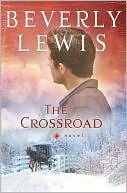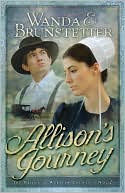When Heaven Weeps (Martyr's Song Series #2)
In the compelling tradition of his debut novel Heavens Wager, Ted Dekker brings a romance of epic proportions. In what he describes as “the Hosea story meets Song of Solomon,” readers will be captivated by the unbelievable story of a young girl and how her remarkable trials and errors drastically alter the events of her life and everyone she meets—ultimately helping her find the secret of how to find true love.
Search in google:
In the compelling tradition of his debut novel Heavens Wager, Ted Dekker brings a romance of epic proportions. In what he describes as "the Hosea story meets Song of Solomon," readers will be captivated by the unbelievable story of a young girl and how her remarkable trials and errors drastically alter the events of her life and everyone she meets—ultimately helping her find the secret of how to find true love.
Chapter One\ Atlanta, Georgia, 1964\ Ivena stood in the small greenhouse attached to her home and frowned at the failing rosebush. The other bushes had not been affected-they flourished around her, glistening with a sprinkling of dewdrops. A bed of Darwin tulip hybrids blossomed bright red and yellow along her greenhouse's glass shell. Behind her, against the solid wall of her house, a flat of purple orchids filled the air with their sweet aroma. A dozen other species of roses grew in neat boxes, none of them infected.\ But this bush had lost its leaves and shriveled in the space of five days, and that was a problem because this wasn't just another rosebush. This was Nadia's rosebush.\ Ivena delicately pried through the dried thorny stems, searching for signs of disease or insects. She'd already tried a host of remedies, from pesticides to a variety of growth agents, all to no avail. It was a Serbian Red from the saxifrage family, snipped from the bush that she and Sister Flouta had planted by the cross.\ When Ivena had left Bosnia for Atlanta, she'd insisted on a greenhouse; it was the one unbreakable link to her past. She made a fine little business selling the flowers to local floral shops in Atlanta, but the real purpose for the greenhouse was this one rosebush, wasn't it? Yes, she knew that as surely as she knew that blood flowed in her veins.\ And now Nadia's rose was dying. Or dead.\ Ivena put one hand on her hip and ran the other through her gray curls. She'd cared for a hundred species of roses over her sixty years and never, never had she seen such a thing. Each bud from Nadia's bush was priceless. If there was a graftable branch alive she would snip it off and nurse it back to health. But every branch seemed affected.\ "Oh, dear Nadia, what am I going to do? What am I going to do?"\ She couldn't answer herself for the simple reason that she had no clue what she would do. She had never considered the possibility that this, the crown of her flower garden, might one day die for no apparent reason at all. It was a travesty.\ Ivena picked through the branches again, hoping that she was wrong. Dried dirt grayed her fingers. They weren't as young or as smooth as they once had been, but years of working delicately around thorns had kept them nimble. Graceful. She could walk her way through a rosebush blindfolded without so much as touching a thorn. But today she felt clumsy and old.\ The stalk between her fingers suddenly snapped. Ivena blinked. It was as dry as tinder. How could it fail so fast? She tsked and shook her head. But then something caught her eye and she stopped.\ Immediately beneath the branch that had broken, a very small shoot of green angled from the main stalk. That was odd. She lowered her head for a closer look.\ The shoot grew out a mere centimeter, almost like a stalk of grass. She touched it gently, afraid to break it. And as she did she saw the tiny split in the bark along the base of that shoot.\ She caught her breath. Strange! It looked like a small graft!\ But she hadn't grafted anything into the plant, had she? No, of course not. She remembered every step of care she'd given this plant over the last five years and none of them included a graft.\ It looked like someone had slit the base of the rosebush open and grafted in this green shoot. And it didn't look like a rose graft either. The stalk was a lighter green. So then maybe it wasn't a graft. Maybe it was a parasite of some kind.\ Ivena let her breath out slowly and touched it again. It was already healed at the insertion point.\ "Hmmm."\ She straightened and walked to the round table where a white porcelain cup still steamed with tea. She lifted it to her lips. The rich aroma of spice warmed her nostrils and she paused, staring through the wisps of steam.\ From this distance of ten feet Nadia's rosebush looked like the Moses' burning bush, but consumed by the flame and burned black. Dead branches reached up from the soil like claws from a grave. Dead.\ Except for that one tiny shoot of green at its base.\ It was very strange indeed.\ Ivena lowered herself into the old wood-spindle chair beside the table, still looking over the teacup to the rosebush. She sat here every morning, humming and sipping her tea and whispering her words to the Father. But today the sight before her was turning things on their heads.\ She lowered the cup without drinking. "Father, what are you doing here?" she said softly.\ Not that he was necessarily doing anything. Rosebushes died, after all. Perhaps with less encouragement than other plants. But an air of consequence had settled on Ivena, and she couldn't ignore it.\ Across the beds of flourishing flowers before her sat this one dead bush-an ugly black scar on a landscape of bright color. But then from the blackened stalk that impossible graft.\ "What are you saying here, Father?"\ She did not hear his answer, but that didn't mean he wasn't talking. He could be yelling for all she knew. Here on Earth it might come through as a distant whisper, easily mistaken for the sound of a gentle breeze. Actually the greenhouse was dead silent. She more felt something, and it could just as easily have been a draft that tickled her hair, or a finger of emotion from the past, as the voice of God.\ Still the scene before her began to massage her heart with fingers of meaning. She just didn't know what that meaning was yet.\ Ivena hummed and a blanket of peace settled over her. She whispered, "Lover of my soul, I worship you. I kiss your feet. Don't ever let me forget." Her words echoed softly through the quiet greenhouse, and she smiled. The Creator was a mischievous one, she often thought. At least playful and easily delighted. And he was up to something, wasn't he?\ A splash of red at her elbow caught her eye. It was her copy of the book. The Dance of the Dead. Its surreal cover showed a man's face wide open with laughter, tears leaking down his cheek.\ Still smiling, Ivena set down her teacup and lifted the book from the table. She ran a hand over the tattered cover. She'd read it a hundred times, of course. But it never lost its edge. Its pages oozed with love and laughter and the heart of the Creator.\ She opened the book and brushed through a few dozen dog-eared pages. He had written a masterpiece, and in some ways it was as much God's words as his. She could begin in the middle or at the beginning or the end and it wouldn't hardly matter. The meaning would not be lost. She opened to the middle and read a few sentences.\ It was odd how such a story could bring this warmth to her heart. But it did, it really did, and that was because her eyes had been opened a little as well. She'd seen a few things through God's eyes.\ Ivena glanced up at the dying rosebush with its impossible graft. Something new was beginning today. But everything had really started with the story in her hands, hadn't it?\ A small spark of delight ran through her bones. She smoothed her dress, crossed her legs and lowered her eyes to the page.\ Yes, this was how it all started.\ Twenty years ago in Bosnia. At the end of the war with the Nazis.\ She read.\ _\ Father Micheal saw the soldiers when they entered the cemetery at the edge of the village. Their small shapes emerged out of the green meadow, like a row of scarecrows tattered by the war. He pulled up and a chill swept down his spine. For a moment the children's laughter about him waned.\ Dear God, protect us. He prayed the words as he had prayed them a hundred times before, but he couldn't stop the tremble that took to his fingers.\ They were a haggard lot. Then again, any soldier who'd managed to survive the brutal fighting that had ravaged Yugoslavia in its liberation from the Nazis would look no different. It was commonplace. But their presence here, in this secluded valley hidden from the war, was not commonplace.\ The smell of hot baked bread wafted through his nostrils. A shrill giggle echoed through the courtyard; water gurgled from the natural spring to his left. Father Micheal stood stooped atop the stone-hewn steps that led to the tall church behind him, and looked past the courtyard in which the children and women laughed in celebration of Nadia's birthday, past the tall stone cross that marked the entrance to the graveyard, past the red rosebushes Claudis Flouta had so carefully planted about her home, to the lush hillside on the south.\ To the four-no five-to the five soldiers approaching.\ He glanced around the courtyard-they laughed and played, enjoying the cele-bration. None of the others had seen the soldiers yet. High above ravens called and Micheal looked up to see four of them circling. He'd dreamed of ravens twice in the last week and each time he'd awoken shaken. But surely this was nothing more than a coincidence.\ Father, protect your children. A flutter of wings to his right caught his attention. He turned and watched a white dove settle for a landing on the vestibule's roof. It cocked its head and eyed him in small jerky movements.\ "Father Micheal?" a child's voice said.\ Micheal turned to face Nadia, who stood trying to hide a faint grin. She wore a pink dress reserved for special occasions. Her eyes sparked blue, like the sea, innocent above a wide nose and blotchy freckles. Her left leg was two inches shorter than her right compliments of polio-a bad case when she was only three. Perhaps their handicaps united them in ways the others could not understand. She with her short leg; he with his hunched back.\ "Yes."\ "Petrus says that since I'm twelve now all the boys will want to marry me. I told him that he's being a foolish little boy, but he insists on running around making a silly game of it. Could you please tell him to stop?"\ Petrus ran up, sneering. If any of the town's forty-three children was a bully, it was this nine-year-old. Oh, he had his sweet side, no doubt. Micheal had repeatedly insisted so to the boy's mother who was known to run about the village with her apron flying, leaving wafts of flour in her wake, shaking her rolling pin while calling for the rascal to get his little rear end home.\ "Nadia loves Milus! Nadia loves Milus!" he chanted and skipped by, looking back, daring her to take up chase.\ "You're a misguided fledgling, Petrus," Nadia said, crossing her arms. "A silly little bird, squawking too much. Why don't you find your worms somewhere else?"\ Petrus pulled up, flushing red. "Oh, you with all your fancy words! You are the one eating worms. With Milus! Nadia and Milus sitting in a tree, eating all the worms they can see!" He sang the verse again and ran off with a whoop, obviously delighted with his victory.\ Nadia placed her hands on her hips and tapped her shorter leg with a disgusted sigh. "You see. He's also insisting this madness about Milus. Please stop him, Father."\ "Of course, darling. But you know that he is just playing." Father Micheal smiled. Nadia might never win a beauty contest, but she surely had the quickest wit of any child he knew. He suppressed the urge to sweep her off her feet and swing her around in his arms. "Come unto me as little children," the Master had said. If only the whole world were filled with the innocence of children. Or better yet, filled with the innocent tenacity of Nadia-among all of these children protected from the war's ravages in this hidden village, Nadia was the most pure. Blameless like a dove despite her uncanny perception of truth and dogged determination to defend that truth. If there was a such a thing as a spiritual prodigy, Nadia was one such person.\ _\ Ivena stopped her reading and looked up, chuckling. Nadia had always been such a smart one. Always would be. She picked up her cup of tea and sipped. And what smart words would Nadia have for the death of her rosebush?\ She set the cup down and continued.\ _\ Father Micheal looked over the courtyard. Of the village's seventy remaining souls, all but ten or so had come today for Nadia's birthday. Only the men were missing, called off to war. The elderly sat in groups about the stone tables, grinning and chatting as they watched the children play a party game that Ivena, Nadia's mother, conducted. Several of the mothers busied themselves over a long table on which they had arranged pastries and the cake Ivena had fretted over for two days. It was perhaps the grandest cake Micheal had ever seen, a foot high and white with pink roses made from frosting.\ Micheal's heart swelled. They were his children. All of them. God had given him these to care for as his own twenty years earlier and he had done so. It had been his first and only church.\ From the corner of his eyes he saw that the soldiers drew nearer and he cast them a glance. Micheal held his robe and sat on the steps. "Come here, Nadia." He lifted an arm for her to sit by him and she limped up the steps. A spark filled her blue eyes and he knew that thoughts of the boy's teasing had taken flight. Nadia sat beside him and he pulled her close. She laid her head on his shoulder and put a frail arm around his back, rubbing his humped back as if it were a perfectly natural feature.\ He swallowed a lump gathering in his throat and kissed the top of her head. "Don't mind Petrus, dear. I fear one day the men will line up to marry such a pretty woman as you will be."\ She showed her age now with a little giggle.\ The soldiers drew near through the graveyard not a hundred yards off. They were Partisans, he saw with some relief. Partisans were likely friendly.\ High above the ravens cawed. There were five now, black against the white sky. Micheal looked to his right, to the vestibule roof. The lone dove stared on and clucked with its one eye peeled to the courtyard.\ Father Micheal looked back to the soldiers. "Nadia, go tell your mother to come," he said.\ She followed his stare and saw them. The smile left her.\ _\ Janjic Jovic, the nineteen-year-old writer turned soldier, followed the others to the village, trudging with the same rhythmic cadence his marching had found in the endless months leading up to this day. Just one foot after another. Ahead and to the right of him their commander, Karadzic, marched deliberately. The other three were fanned out to his left.\ They had no business here, and Janjic had told Karadzic so at the top of the hill an hour earlier, when they'd first stumbled on this valley. Their mission was to join the main column twenty miles north, not go searching for churches to burn. The commander had nearly bitten Janjic's head off with his crude diatribe on the real purpose for this war. It had much less to do with Nazis and much more to do with restoring Serbia; the purging of her enemies-and that included anyone who wasn't a good Serb. Especially Franciscans.\ The whole thing was nonsense, of course. They all knew that Karadzic killed good Serbs as easily as Franciscans. His own mother, for example; with a knife, he'd bragged. For being both a Christian and a whore. Never mind that she was Serbian to the marrow. And one day the crazed commander would try to kill him. Janjic could feel it in his bones. He was a philosopher-a writer-not a killer, and Karadzic despised him for it. As a simple matter of survival, Janjic had relegated himself to following the man obediently to the end of the war.\ He slogged on, regretting his open opposition of Karadzic's decision to descend into the village. It had been the second time in the last week. Once more and he just might find a bullet smashing through his teeth.\ Only when they were within a stone's throw of the village did Janjic study the scene with a careful eye. They approached from the south, through a graveyard holding fifty or sixty stones. This was the first oddity that struck him. So few graves. In any village throughout Bosnia you could expect to find hundreds if not thousands of fresh graves, pushing into neighboring lots never intended for burying the dead. They were the undeniable markers of a war gone mad.\ But in this village, hidden here in this lush green valley, he counted no more than ten plots that looked recent.\ He studied the neat rows of houses now-fewer than fifty-also unmarked by the war. The tall church spire stood high above the houses, adorned with a white cross, brilliant against the dull sky. It looked unlike most he'd seen. Orthodox? Perhaps Catholic, which in Karadzic's view would be as bad as Franciscan, Janjic thought. The rest of the structure rose in gray stone, elegantly carved like most churches he'd seen. Small castles made for God.\ None in the squad cared much for God-not even the Jew, Paul. But in Bosnia, religion had little to do with God. It had to do with who was right and who was wrong, not with who loved God. If you weren't Orthodox or at least a good Serb, you weren't right. If you were a Christian but not an Orthodox Christian, you weren't right. If you were Franciscan, you were most certainly not right. Thinking of it all, Janjic wasn't sure he disagreed: Karadzic was right-religious affiliation was more a defining line of this war than the Nazi occupation. The Ustashe, Yugoslavia's brand of the Gestapo, had murdered hundreds of thousands of Serbs using techniques that horrified even the Nazis. Worse, they'd done it with the blessing of both the Catholic Archbishop of Sarajevo and the Franciscans, neither of whom evidently understood the love of God. But then no one in this war knew much about the love of God. It was a war absent of God, if indeed there even was such a being.\ A child suddenly ran past the walls that surrounded the courtyard, out toward the tall cross, not fifty feet from them now. A boy, dressed in a white shirt and black shorts, with suspenders and a bow tie. The child slid to a halt, his eyes popping when he saw them.\ Janjic smiled at the sight. The smell of hot bread filled his nostrils.\ "Petrus! You come back here!" A woman, presumably the boy's mother, ran past the wall. She ran for the boy, grabbed his arm and yanked him back toward the churchyard. He struggled free and ran for Karadzic. Stopping ten feet from the commander, the boy whirled about and began marching in cadence. One, two! One, two! Swinging his arms and lifting his knees like a soldier on parade.\ "Petrus! Come back here!" the woman demanded. She pulled him toward the courtyard, smiling apologetically at the soldiers.\ Karadzic ignored the boy entirely and kept his eyes fixed ahead. He was a tall man, six foot two at least, and boxy above the waist. His bulky torso rested on spindly legs, like a bulldog born on stilts. His face was square and leathery, pitted by a collage of small scars. Glassy gray eyes peered past eyebrows so thick they obscured his eyelashes from view.\ Janjic was the last to enter the courtyard, following the others' clomping boots. Karadzic halted and they pulled up behind him. Janjic sidestepped for a clear view. What he saw then made him blink.\ A priest stood on the ancient church steps, dressed in flowing black robes. His hair fell to his shoulders; a beard extended several inches past his chin. He stood with a hunch in his shoulders. A hunchback. Not so severe that he was stooped to the ground, but enough so that it could not be hidden. Yet it was the priest's soft smile beneath brilliant green eyes that stopped them all, Janjic thought. That and the children sitting on the steps at his feet, all staring with wide eyes now, smiling at the soldiers' sudden appearance around the wall. And the mothers who sat with the children, holding them, smoothing their hair or stroking their cheeks. Smiling. All of them seemed to be smiling. Smiling and staring as if some long-lost prodigal had just stepped into town.\ In all, fifty or sixty pairs of eyes gleamed across the courtyard, fixed on the soldiers.\ "Welcome to Vares," the priest said, bowing politely.\ They had interrupted a party of some kind, Janjic saw. The children were mostly dressed in ties and dresses. A long table adorned with pastries and a cake sat untouched to their left. The sight seemed surreal to him; a picture of life in the midst of death.\ "What church is this?" Karadzic demanded.\ "Anglican," the priest said.\ "Angli . . . ?" Karadzic glanced at his men, then faced the church. "I've never heard of this church."\ A young girl in a pink dress suddenly stood from her mother's arms and walked awkwardly toward the table adorned with pastries. She hobbled with a limp.\ Karadzic ignored her and twisted his fingers around the barrel of his rifle, tapping its butt on the stone. "Why is this church still standing?"\ No one answered the question. Janjic watched the little girl place a golden brown pastry on a napkin.\ "So now you can't speak?" Karadzic demanded. "Every church for a hundred miles is burned to the ground, but yours is standing, untouched. And it makes me think that maybe you've been sleeping with the Ustashe."\ "God has granted us favor," the priest said.\ The commander paused. His lips twitched to a slight grin. A bead of sweat broke from the large man's forehead and ran down his flat cheek. "God has granted you favor? He's flown out of the sky and built an invisible shield over this valley to keep the bullets out." His lips flattened suddenly. "That's nonsense, you fool. God has allowed every Orthodox church in Yugoslavia to burn to the ground. And yet yours is not."\ To their right, the child hobbled toward a spring that gurgled in the corner and dipped a mug into its waters. No one seemed to pay her attention except the woman on the steps whom she had left, presumably her mother. She watched her young daughter with scrunched brow.\ The Jew Paul spoke quietly. "They're Anglican, not Franciscans or Catholics. I know Anglicans. They're good Serbs."\ Karadzic glared at Paul. "And you're a Jew."\ "I'm only telling you what I know," Paul said with a shrug.\ The girl in the pink dress approached them now, carrying a mug of cold water in one hand and the pastry in the other. She stopped three feet from Karadzic and lifted the food to him. None of the villagers moved.\ Karadzic ignored her. "And if you're protected by God, why doesn't your God also protect the true church of Serbia? The Orthodox church?"\ The priest smiled gently, still staring without blinking, hunched over on the steps.\ "I'm asking you a question, Priest."\ "I cannot speak for God. Perhaps you should ask him," the priest said.\ The answer made the commander blink.\ "I meant no disrespect, sir." The father dipped his head. "We are God-loving people with no quarrel."\ The small girl stood still, offering the pastry and water to the commander. Karadzic's face turned red and his eyes took on that menacing stare Janjic had seen so many times before.\ Janjic moved on impulse. He stepped up to the girl and smiled. "You're very kind," he said. "Only a good Serb would offer bread and water to a tired and hungry Partisan soldier." He reached for the pastry and took it. "Thank you."\ As if the words had released them from an unseen grip, a dozen children stood from the stairs and ran to the table in a mad scramble, arguing about who was to be first. They quickly gathered up food to follow the young girl's example and then rushed for the soldiers bearing pastries and beaming. The children were strikingly innocent, Janjic thought. This was just another game to them. The sudden turn in events had effectively silenced Karadzic, but Janjic dared not look at the commander. If Molosov and the others didn't take his que there would be hell to pay later-this he knew with certainty.\ "My name is Nadia," the young girl said, looking up at Janjic. "It's my birthday today. I'm twelve years old."\ Ordinarily Janjic would have answered the girl-told her what a brave twelve-year-old she was, but today his mind was on his comrades. Several children now swarmed around Paul and Puzup, and Janjic saw with relief that they were accepting the pastries. With smiles in fact.\ "Karadzic. We could use the food, sir," Molosov, their second in command, said.\ Nadia held the cup in her hand toward Karadzic. Once again every eye turned to the commander, begging him to show some sense; pleading for a breath of mercy. A thin grin curved Karadzic's lips. Janjic looked at the women on the steps and saw their eyes light like jewels.\ Karadzic suddenly slapped the cup aside, sending it flipping through the air and clattering along the stone. Water showered the steps, staining them in dark blotches. The children serving their pastries spun toward Nadia.\ Karadzic brushed angrily past her. She backpedaled and fell to her bottom. The commander stormed over to the birthday table, and kicked his boot against the leading edge. The entire birthday display rose into the air and crashed onto the ground.\ Nadia scrambled to her feet and limped quickly for her mother, who drew her in. The other children scampered for the steps.\ Karadzic turned to them, his face red. "Now do I have your attention?"








